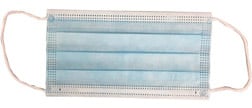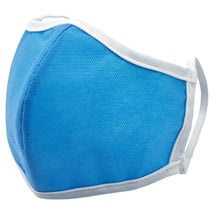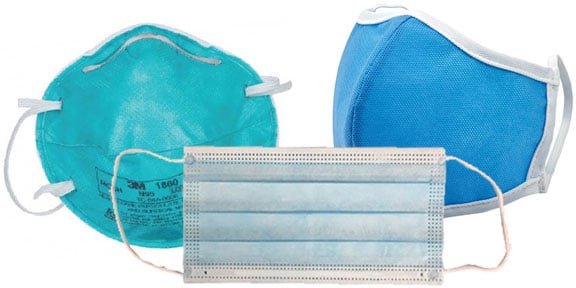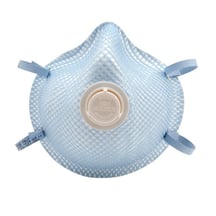The Centers for Disease Control (CDC) has made recommendations that when followed, can help slow the spread of the COVID-19 virus. Among the most widely followed and enforced of these recommendations is the use of face coverings, which can prevent the spread of the virus when used effectively to reduce or eliminate the person-to-person transmission of the virus via respiratory droplets that can be spread when we sneeze, cough or talk. But with so many options available, what is the difference between masks and which should we use (and when)?
N95 RESPIRATORS:
Intended to be tight-fitting, N95 respirators offer the highest level of protection against airborne particles and are more effective than disposable surgical masks or cloth face coverings, because N95 respirators can filter both large and small particles, including aerosols. In fact, National Institute of Occupational Safety and Health (NIOSH) certified masks ensure that the N95 mask filters can remove at least 95% of airborne particles. N95 respirators are not the recommended COVID-19 protection suggested to the general public as per the CDC, as supplies are limited and prioritized for high-exposure occupational fields including hospital staff and first responders. If you are using a disposable N95 respirator, it should not be reused.
DISPOSABLE SURGICAL MASKS:
Disposable surgical masks do not filter out all airborne particles and provide limited respiratory protection to the wearer. They do provide fluid resistance, meaning they can also help protect others from respiratory droplets expelled by the wearer. Surgical masks are cleared for fluid resistance by the FDA, but they do not offer a level of protection comparable to aforementioned N95 respirators or masks. Disposable surgical masks are loose fitting, should cover both your mouth and your nose, and should be thrown away after each use (or interaction with a new patient).
CLOTH MASKS:
The CDC recommends cloth face coverings for use by the general public in stores and other places where effective social distancing (remaining at least 6 feet apart) is difficult to maintain. Cloth masks can help prevent the spread of COVID-19 by protecting others from respiratory droplets expelled by the wearer. Cloth masks should not be used in a medical or high exposure setting, as they do not offer protection comparable to N95 masks or respirators, which to reiterate, is a level of protection not required by the standard-risk general public for everyday use as per the CDC. Cloth masks provide better quality protection when comprised of multiple levels of fabric and should be cleaned regularly between each use. Cloth masks are less effective when they are dirty or wet, so for those that work outdoors or in high temperatures, in the construction or manufacturing industry, or in other environments where the cloth mask may get soiled, you should have additional clean cloth masks or disposable masks readily available.
Helpful Links For More Information:
CDC: Mask Guidelines & Considerations
OSHA: Respirators vs. Surgical Masks




